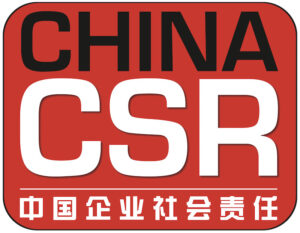Siemens China held a media workshop on sustainability in Chengdu, and brought the increasing energy and environmental challenges in Sichuan and China to the attention of the media and the general public.
At the workshop Zhang Bingjun, vice president of Siemens Ltd., China and general manager for Sichuan Province said that Siemens is better positioned than any other company to be a partner for Sichuan and China to save energy and reduce greenhouse gas emissions. He added that their comprehensive environmental portfolio includes solutions for nearly every environmentally relevant field of power generation, transmission and consumption — buildings, lighting, transportation and industry as well as environmental technologies such as water purification and air pollution controls. He also introduced a new model for financing called Energy Performance Contracting, which is intended to provide energy efficient technology and financing to local enterprises through leasing. Customers can use the energy and operational cost savings they make to pay for their investment. The new model has been successfully applied in Volan Cement, one of the biggest Chinese cement producers.
Last year Siemens was involved ina bribery scandal in China that rocked its commitment to corporate social responsibility. KPMG in China, an auditor for Siemens, said in an internal audit report called "SAS 99 Audit Procedures-Summary of Results", which was released in November 2006, that during their auditing, they found about EUR1.7 million worth of dubious consulting fees and they don't know for what kind of services Siemens for paid the fee. KPMG also said that there were a lot of other services vaguely marked in Siemens' contracts with its partners. KPMG defined the nature of Siemens's behaviors in the contract as foreign corrupt practices.
In November 2006, German police checked about 30 offices of Siemens in Germany, including the office of then-CEO Klaus Kleinfeld and detained several employees who were accused of offering bribes to other countries in exchange for projects. According to a Siemens' internal investigation at the time, the total bribery involved was worth around EUR420 million.
Bernd Eitel, director of media and public relations of Siemens China corporate communications, told local media last year that they have begun to monitor all their consulting companies, namely, third parties that are engaged in providing sales-related consulting and guidance to Siemens. The company calls these companies their business consultants and says that they are enforcing a new business consulting agreement with these parties, which asks all the business consulting agreements to be approved by both the Standard Conformity Office and the CEO of Siemens.
Recently, Siemens global CEO Peter Loscher announced that in the 2007 fiscal year the company generated revenues of some EUR17 billion from products and solutions for environmental and climate protection while reducing customers' carbon dioxide emissions by 114 million tons — more than 20 times the amount of carbon dioxide that Siemens itself produces. Moreover, the company also sets the target of reducing its own carbon dioxide emissions by 20% from 2006 to 2011, and significantly lowering waste production and water consumption.
In November 2007, the company announced that it is injecting half of its CNY10 billion mid-term investments into innovative energy-saving and environmentally-friendly technologies and solutions to expand its leading position in this field.

